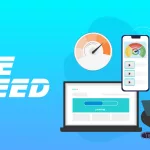Earlier we have talked about different types of rich snippets and how they can improve your CTR and search engine visibility. We have briefly discussed the FAQ schema markup.
In this segment, we will discuss how you can use FAQ pages to improve the online visibility and CTR of your website.
Search results these days are crowded with mediocre content. Unless you have something interesting to cover, there is a good chance that your content will be buried deep in Google SERPs.
Rich snippets make your content stand out from the rest of the average web pages. While standard snippets consist of the title, description, and URL of your web page, rich snippets give your content a bit more flair with some additional information that can be useful for searchers.
With every major update, Google is trying to be more visual, informative, and interactive. They want their users to have the best search experience. To ensure this, Google tries to provide the most relevant and useful search results to any search query.
Google wants the search process to be effortless and efficient. This is why they introduced rich snippets and rich results. The intent is to ensure that users can discover important information without having to visit a website.
Based on your search query, you can see rich snippets, rich results, featured snippets, and a knowledge panel in your SERPs.
One form of rich snippet is the FAQ in Google search results. Many SEOs and content marketers are unaware of the benefits of using the FAQ schema.
FAQ is one of the easiest ways of getting organic traffic to your website. Having FAQ schema increases your SERP visibility as well as organic CTR.
So if you want an instant bump in your traffic, start using FAQ rich snippets.
What is an FAQ rich snippet?

An FAQ rich snippet is a form of rich results that appears in SERP when you make a Google search.
It includes relevant questions covered on the linked page. The questions are arranged in a dropdown. When clicked it unfolds an answer taken from the linked page.
FAQ rich snippet can help you find relevant questions from a particular topic that are frequently searched by other users.
The intent behind FAQ rich snippets is to provide users with enhanced search results. FAQ rich snippet can help users find quick answers and make the search process a lot more efficient.
To appear on rich results, your FAQpage has to be marked up with an FAQ schema.
What Is FAQ Schema Markup?

FAQ schema markup is the structured data of a FAQpage that uses a unique semantic vocabulary to help search engines determine your content type.
Adding schema markup to your FAQ page sends a signal to Google that your page includes Q&A.
FAQ pages (frequently asked questions pages) mostly cover questions that users might have regarding a specific topic.
It is very helpful for users when you have an FAQ page with a series of questions and their answers covering a certain topic. It makes the topic easily digestible.
Apart from your users, FAQ pages can also help Google and other search engines determine the overall theme of your page or website.
When these FAQpages are marked up properly they have a chance to appear as “rich results” in Google Searches and can also show up on Google voice search.
Adding FAQ schema markup on your web pages can improve the search experience of your target audience.
The Benefits of Adding FAQ Schema
Unlike other SEO techniques, FAQ schema can show results within days. Adding FAQ schema to your web pages may generate traffic in no time, whether you have an old site or a new one.
By implementing FAQ schema you can drive organic traffic to your site without having to think about your off-page SEO strategy and link building.
This is a full-proof SEO technique that is often overlooked by many SEOs. Mostly because very few people are unaware of the benefits of having a FAQpages.
Within a day or two, you should notice organic traffic to your website if everything is done correctly.
The process can be a bit intimidating but once you are familiar with the process it will be a lot easier. You may simply follow the instructions and put them into action step by step.
The best part about adding FAQ schema to your web page is you don’t need any technical knowledge. There are various schema generators and plugins to make the deployment process a lot easier.
Why Use FAQ Schema?
We have examined a lot of websites and found out that only a handful of sites were using FAQpage schema. There is very little competition for rich snippets in any niche.
So if you are not using it, you are missing out on a great opportunity to grow your traffic.
Winning FAQ rich snippets in search results may have a significant influence on your website’s overall visibility. It’s just a means of gaining more SERP real estate, which will eventually attract more visitors to your website.
The more SERP space you have, the more likely you are to be clicked. It is also a mode of interaction. Your answers will decide if a user wants to further interact with your site by clicking on the link.
Here are the benefits of having your website appear in FAQ rich snippets:
Improve SERP Visibility
The content of your webpage is broken down into multiple questions. This improves the online visibility of your web pages as more content is shown to the searchers.
The more questions get listed the more space your web page takes in the search result. This results in an increase in organic CTR as people are more likely to interact with your content.
FAQ rich snippets often work as the first point of interaction. Depending on the relevancy of your questions and answers, users will decide if they want to click on your web page to learn more.
Increase In CTR
Winning FAQ rich snippets may significantly improve your website’s CTR. Due to the increased exposure of your web pages in the SERP, the probability of them being clicked improves as well.
The best part about FAQ schema is it takes very little time to see improvements in your organic CTR. Once you get listed in the FAQ rich snippets you will see organic traffic coming your way.
We did a test using 3000 web pages that appear on the first page of Google for specific search terms. When pages that rank after the top ten places are featured in the FAQ rich snippet section, they receive a 97% boost in search traffic.
Google Voice Search Eligibility
Another advantage of being featured in the FAQ rich snippets is that your site may become qualified for Google voice search.
The number of people using voice search is increasing quickly. Over 40% of adults in the US use Google voice search.
Winning FAQ rich snippets might help your site become a resource for people who use voice search to ask inquiries.
So being eligible for voice search can help improve your SERPs ranking as well as drive more organic traffic to your site.
Adding FAQ schema to pages that rank on the first page but not in the first three places may be quite beneficial. You can see an increase in organic traffic as well as improve online visibility.
Winning rich snippets is like winning the lottery.
Everyone wants that special spot on SERP. Even if you implement all your structured data properly, sometimes it can take months to see a visible result for some rich snippet. Unlike other rich snippets, FAQ rich snippets are one of the easiest and fastest to obtain.
Pages that qualify for the FAQ rich results are given extra space below the standard search snippet in the form of FAQ tabs. This means your web pages take up more space in SERP which leads to more clicks to your site and, as a result, a higher click-through rate.
How to Add FAQ Schema Manually On Website?

Now that you have a better understanding of how FAQ rich snippets can be beneficial for your website, let’s figure out how to implement it on your website and deploy the structured data properly.
Adding schema to a custom-built site can be a bit overwhelming. With all the coding and deployment it can sometimes get confusing especially if you have no coding experience.
But if you follow the instructions adding FAQ schema on your web pages will be a piece of cake.
Firstly you need to create a FAQ page or a FAQ section on one of your pages. Your page should have at least four questions (preferably in H2 or H3 heading) followed by relevant answers underneath each question.
If you want to get technical, you may write the markup using either JSON-LD or Microdata.
You can also use a schema markup generator to create JSON-LD markups, including all of the required item properties and more. This is the easiest way to create the script you need to produce a FAQ rich snippet.
Once you are done generating the structured data, you need to implement it on your web page. Here are few ways you can add the script to your page.
- Add the script manually into the <head> section of the specific page.
- Use Google Tag Manager to add the code.
How To Add FAQ Schema in WordPress?

Using a WordPress site makes incorporating FAQ schema into your pages a lot easier. You don’t need to use custom code to implement schema markup on your website.
All you need to do is install an SEO plugin that will automatically do the work for you. You can use Rank Math or Yoast to create schema markup for your pages.
There is also a standalone FAQPage schema plugin that makes it easier to add the schema to your blog posts and pages.
We are using Yoast to add schema markup to our pages. Before adding FAQ schema, you need to have more than four questions followed by relevant answers.
Your questions should be wrapped with H2 or H3 heading and under each question, you will write the answer in a paragraph.
Once you are done writing your Q&A you will need to select your page type.
Just go to the Yoast SEO screen element section and click on the schema tab. There you will see a dropdown for your ‘page type’. Select “FAQ page” for your preferred page type and publish your content.
Content Guidelines For FAQ Rich Snippets
Make sure your content complies with Google’s guidelines before publishing it. Google has provided guidelines for marking up FAQs with structured data:
- You should use FAQPage only if your page includes a list of questions and answers.
- Don’t use FAQPage for advertising purposes.
- All FAQ content must be visible to the user on the source page.
Here is the guideline for using FAQpage.





